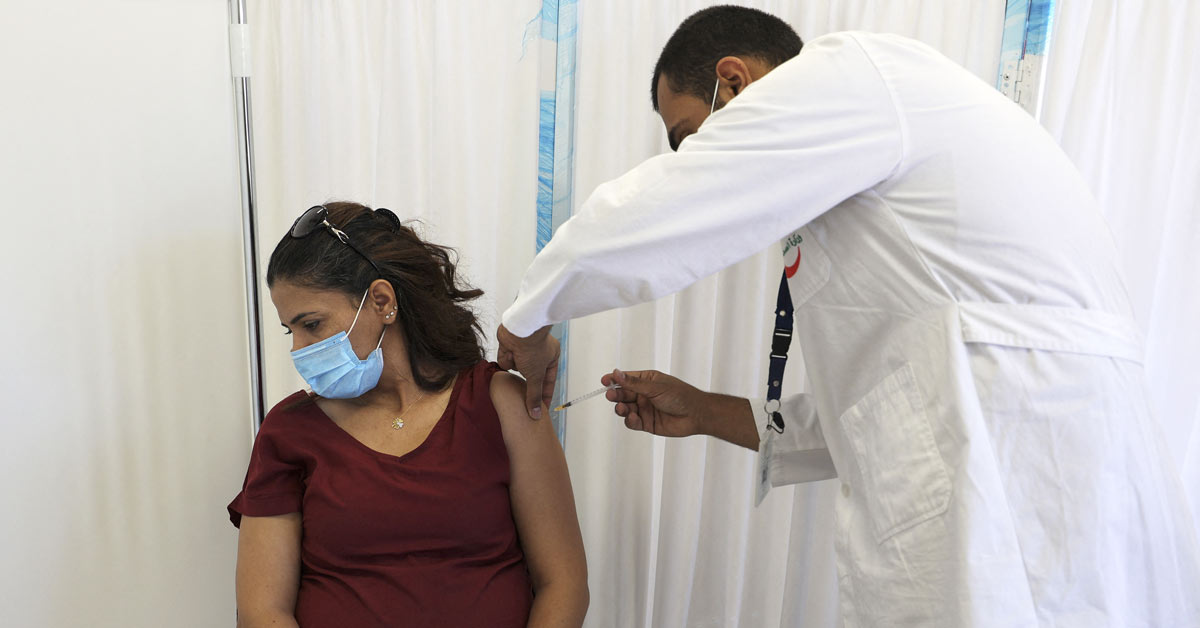Pregnant women are being turned away from COVID vaccine clinics despite clinical advice, experts have warned as they urged ministers to ramp up efforts to reach unvaccinated groups.
Members of the United Kingdom’s Joint Committee on Vaccination and Immunisation (JCVI) told the media that efforts to increase booster jab uptake will not be sufficient to prevent more deaths and hospitalisations and that ministers must prioritise reaching those who have had no jabs. In particular, they urged a focus on pregnant women as only about 15 percent in the UK have been fully vaccinated. Among all over-12s, the figure is 79 percent.
On Tuesday, UK’s National Health Service (NHS) said pregnant women should never be turned away from clinics and said vaccines could save the lives of women and their babies.
New data from Oxford University’s MBRRACE-UK study on maternal health shows that at least 13 pregnant women died with COVID between July and September this year, with 85 percent of them believed to have been unvaccinated. The figure is higher than in the first and second waves of the pandemic when nine and 11 pregnant women died but when jabs were not available.
Prof Marian Knight, the lead for the MBRRACE-UK programme, said there was still no joined-up messaging across the health service.
“Women are being turned away from clinics and now there are some trusts offering it as part of the maternity service, but it is not universal so there are still barriers,” she said.
“It is important we start to see data on outcomes in vaccinated women so we can show evidence that vaccines are safe, rather than say there’s no evidence they cause harm. These are very small numbers, but the point is that women could have been saved; children have been orphaned.”
Joeli Brearley, the founder of the charity Pregnant Then Screwed, said old leaflets advising against the jab were still in circulation at some UK healthcare centres. Some professionals were giving conflicting advice on safety, with hesitancy also driven by the fact that pregnant women were not yet included in the booster jab drive, she added. “It sends out the message: we are not sure about pregnant women and the vaccination.”
COVID in pregnancy is linked to a raised risk of premature delivery, while pregnant women are more likely to become seriously ill than non-pregnant women of the same age. A previous study found that one in six of 118 COVID patients requiring the most intensive ventilation treatment were unvaccinated pregnant women.
Other research suggests the Delta variant poses a greater threat to pregnant women than previous variants. In July, the UK Obstetric Surveillance System found that one in four pregnant women admitted to hospital with COVID in the first wave had moderate to severe disease compared with 45 percent of recent admissions. Between March and July, one in three pregnant women in hospital with COVID required respiratory support, and one in seven required intensive care.
Adam Finn, a professor of paediatrics at the University of Bristol and a member of the JCVI, said: “It does now seem clear that not only does COVID in pregnancy bring an increased risk of premature delivery but also pregnant women are more likely to get seriously ill than non-pregnant women of the same age. So there’s a need to communicate that effectively and that can probably most effectively be done by midwives.”
“The people who benefit most from vaccines, whether or not they are pregnant, are those who have had no doses so far. Explaining to people why this makes sense and is important for them is, perhaps, the most worthwhile thing we could be doing at present.”
Finn said: “Getting the booster programme done as quickly as possible is only one aspect of a complex situation.”
“It’s important to immunise the right people - those who actually need a booster - at the right time when their response to it will be substantial and as long-lasting as possible. It’s also important not to overestimate what the booster programme is capable of - after all, it is simply increasing the level of protection against serious illness in people whose protection from the first two doses is still pretty good.
“Finally, the booster programme will not do much to reduce the circulation of the virus more generally or any time soon - other precautions would be needed to achieve that.” – The Guardian
